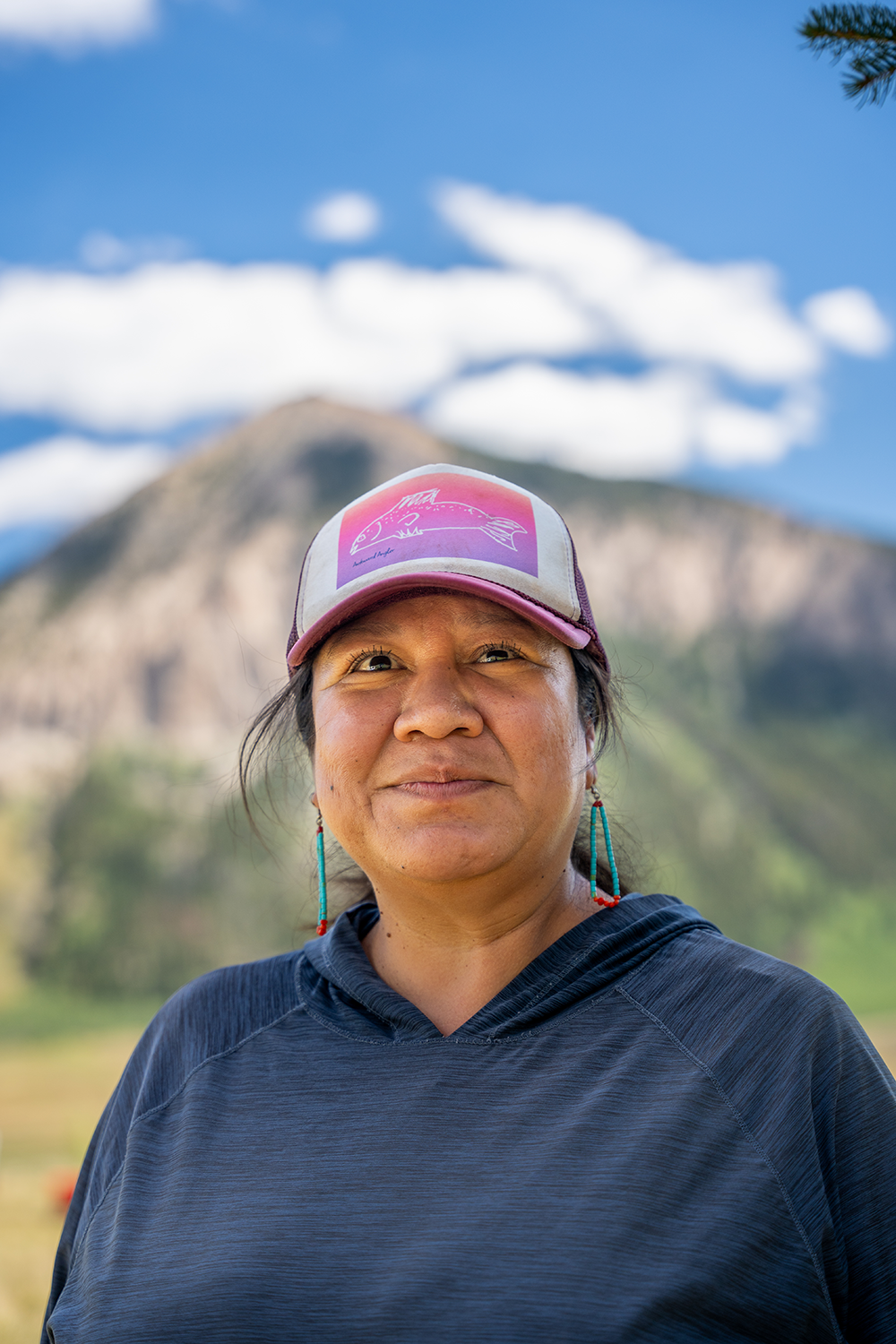Brought up in Kirtland, New Mexico, Erica Nelson has spent the last decade guiding—rock climbing, whitewater rafting, backpacking, skiing, and now fly fishing—across the West. She’s often one of few women, let alone non-white women, let alone Native American people, in any given space.
To combat lack of representation in the sport, Nelson hosts the Awkward Angler podcast about the intersection of fishing and social justice, consults on diversity and inclusion with companies including Orvis, and serves as an ambassador for the advocacy organization Brown Folks Fishing. In between, she guides fly-fishing trips on rivers near Gunnison, Colorado.
“I’ve found that fly fishing is a gateway to conservation.”
“To me, it’s about looking at fly fishing as if everything is connected,” says the Orvis-endorsed guide based in ancestral Ute territory, now Crested Butte. “We need healthy air, we need healthy water, we need healthy birds and bugs to be able to catch healthy fish…. I’ve found that fly fishing is a gateway to conservation.”

Photo by John Holdmeier.
How did you get into fly fishing?
In 2016, I moved to Wyoming for a job with NOLS [National Outdoor Leadership School], where everyone liked to fly fish. I thought it was unattainable and expensive, but my coworkers were casual about it and went in jeans and flip-flops. I started watching Youtube videos and asking fly-fishing guides on Tinder to teach me, and soon honed my skills. At that point, I was over “guide life,” but when I moved to Crested Butte in 2018 and didn’t see myself reflected on the water, I wanted to change that.
What is it like being the only non-white, woman guide in your area?
Most other boats I pass [look] so serious. When I do my pro-bono fishing trips for the queer community here in the valley, we’re dressed up and playing our music and having so much fun. Those are the people I want to see out on the river—people who see fly fishing as fun and educational and who bring their authentic selves to it.
Have you noticed a change in the fly-fishing community in recent years?
There was a spike in women getting into the sport in 2021 [at the height of the pandemic], but I knew we were going to see a decline soon after because the industry isn’t changing, [in terms of] being truly inclusive of other demographics.
How are efforts to make fly fishing more inclusive going?
Most people in the industry are waiting for results that make a business case for diversity, equity, and inclusion, and that’s not part of the work. Companies appease staff through trainings and creating committees, but there [often isn’t] any integration. Personally, I’m drained. I have given so much to every training, every consultation, everything I do. I don’t want to say I’m burning out, but where are the other people willing to carry this burden?
How is this playing out on the water?
I asked 20 women who came to a retreat I recently [helped facilitate] about what barriers they face, and they all talked about access and belonging. In my experience, the majority of people you encounter are white men who are not friendly, and that can result in an environment where I sometimes don’t feel safe. It’s also too much of an elitist club. I predict we’re going to see younger people developing a new outlook on where the industry should be.
Follow Nelson on Instagram at @awkwardangler, and learn more about her at awkwardangler.com.
Book Nelson’s fly-fishing guiding services through Willowfly Anglers in Almont, Colorado.
Cover photo by John Holdmeier.

